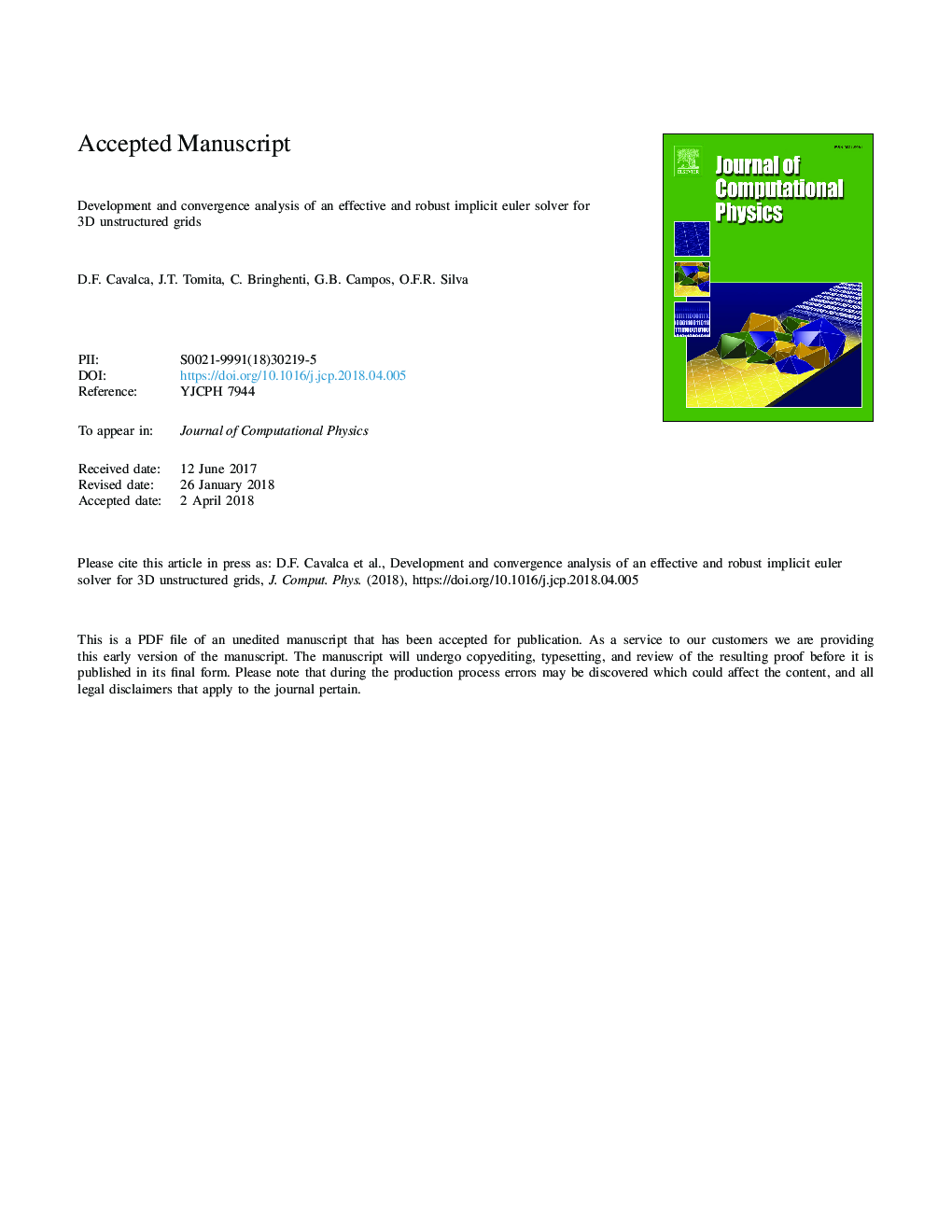| Article ID | Journal | Published Year | Pages | File Type |
|---|---|---|---|---|
| 6928804 | Journal of Computational Physics | 2018 | 27 Pages |
Abstract
This paper reports the development and convergence analysis in steady-state of an effective and robust implicit finite-volume solver for compressible Euler equations on three-dimensional unstructured grids. A second-order upwind scheme (MUSCL) was employed based on Roe's approximate Flux-Difference Scheme (FDS) by using Venkatrakishnan flux limiters. The construction of the linear system for the implicit scheme was performed by applying the backward Euler on the left-hand side of the conservation equation and Newton-type linearization on the right-hand side. The Jacobian matrix that resulted from the linearization process was computed analytically using Roe flux terms. In this phase, the defect-correction technique was employed allowing effective time-dependent computations by an implicit time-integration scheme. In this approach, the flux integral on the right-hand side is computed based on a high-order of accuracy whilst the left-hand side the Jacobian is performed based on the low-order. The resulting sparse and large system of linear equations is solved by a sequential Gauss-Seidel iterative method. Simulations were performed and the developed implicit defect-correction solver was validated and verified. In addition, convergence analysis comparing the implicit solver and the explicit Runge-Kutta of 5-steps using Implicit Residual Smoothing (IRS) were performed showing the significant speed-up of the implicit solver over the explicit one. Simulations were performed for case studies to demonstrate the robustness of the developed implicit defect-correction solver in solving typical problems of aerodynamic involving transonic condition and shock wave captures for internal and external flows. Finally, the main particularities of the implicit scheme were investigated and discussed considering the simulation results, showing also its capacity to serve as an effective preconditioner (start-up method) to other implicit techniques.
Related Topics
Physical Sciences and Engineering
Computer Science
Computer Science Applications
Authors
D.F. Cavalca, C. Bringhenti, G.B. Campos, J.T. Tomita, O.F.R. Silva,
